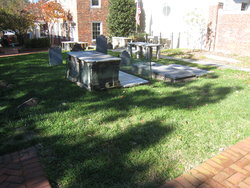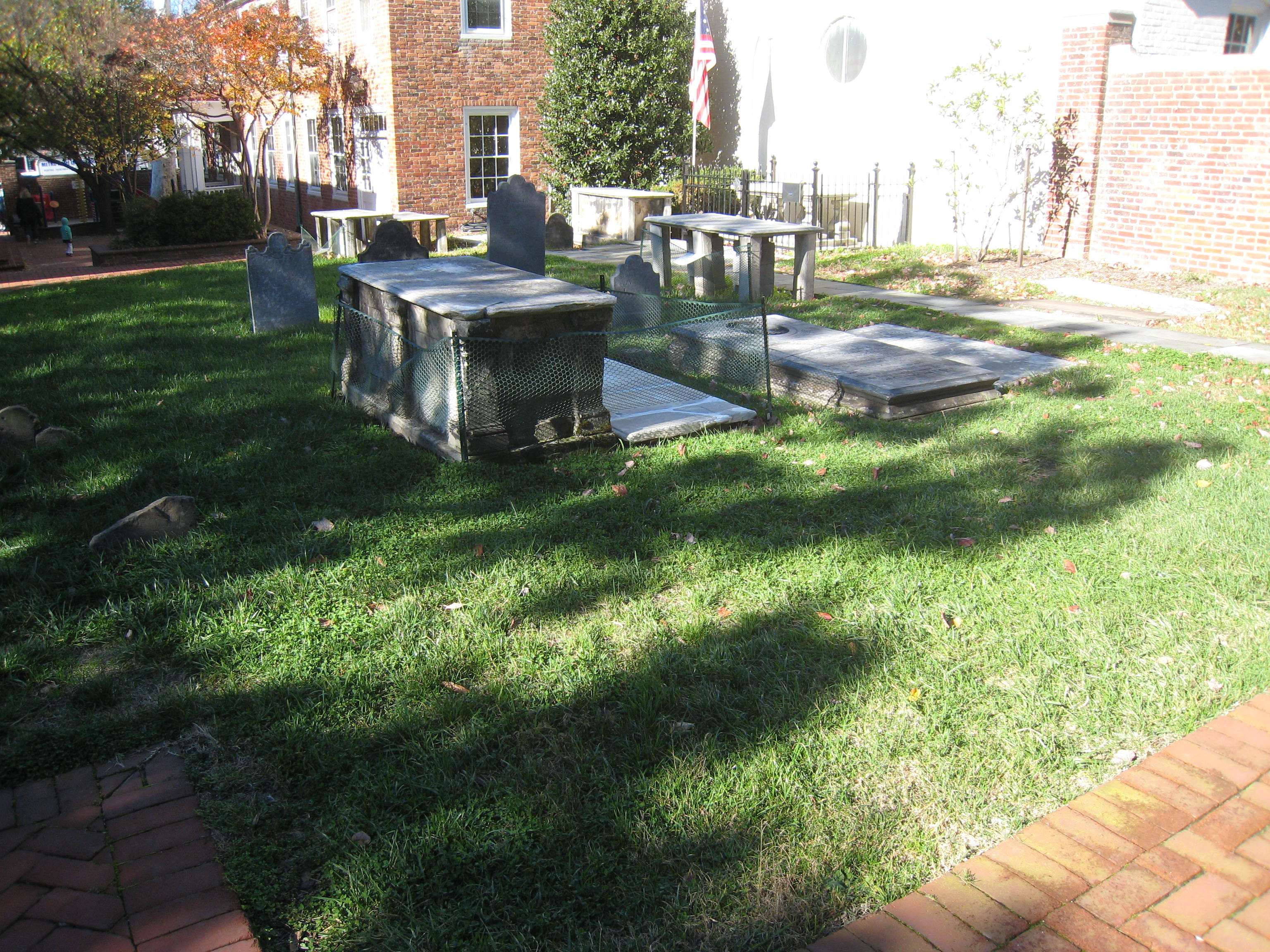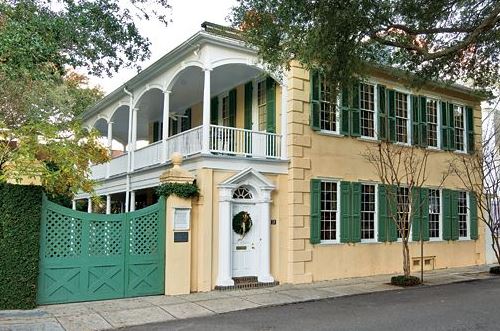Amanda would be the love of his life and the inspiration of his first literary works, a series of poems, one known as "Arouet to Amanda" which expresses his feelings about not being able to marry Amanda.
At the age of 15, a family friend of Joseph's father, Dr. Isaac Senter, brought Joseph into his practice as an apprentice; where he studied to become a physician. In 1783, now Dr. Joseph Ladd, he moved to Charleston, South Carolina on a reference of famed Revolutionary General Nathaniel Greene, to start his medical practice.
Upon his arrival, Dr. Ladd met a young attorney, Ralph Isaacs; who would became his friend and later his adversary. Over the next few years, Dr. Ladd's practiced flourished and his social life, as well.
Over time, Joseph Ladd and Ralph Isaacs friendship soured, with accusations being made in the local "Charleston Morning Post" newspaper. This lead to Ralph Isaacs challenging Joseph to a duel; which was a legal way to defend ones honor. Joseph, a pacifist from birth, did not want to duel, but his honor was at stake and agreed.
In the early morning hours of October 23rd 1786, Joseph Ladd walked down to "Dueler's Alley" a few blocks from his boarding house and took his position to duel his former friend. Stepping off ten paces, he turned and fired. His pistol fired over the head of Ralph Isaacs, but Ralph fired at Joseph's leg "to wound, but not kill" thus keeping everyone's honor intact.
Joseph Ladd was carried back to his boarding house at 59 Church Street to be treated. His kneecap shattered, the wound developed gangrene and Joseph Ladd died ten days later on November 2nd 1786. He was only 22 years of age. His body was sent to his parent's home; who had relocated to Alexandria, Virginia for burial.
Notes of interest:
══════════════════
Joseph Ladd’s "The Poems of Arouet" were published the year of his death, marks him as one of the more accomplished poets of eighteenth-century America. One of the poems, “The Prospect of America,” was inscribed by the author “To the Second Fabius, His Excellency George Washington, Esq.” The Ladd volume does not appear in the inventory of the library at Mount Vernon made after GW’s death.
Dr. Joseph Brown Ladd's sister, Elizabeth Ladd Haskins, submitted his collection of poems and letters to be published. The result was the book: "The literary remains of Joseph Brown Ladd, M. D. ─ A sketch of the Author's Life" by W. B. Chittenden published in 1832.
"Dueler's Alley" in Charleston, was the scene of many duels, now known as Philadelphia Alley, it is a secluded, one-block stretch nestled between Church Street and State Street.
Amanda would be the love of his life and the inspiration of his first literary works, a series of poems, one known as "Arouet to Amanda" which expresses his feelings about not being able to marry Amanda.
At the age of 15, a family friend of Joseph's father, Dr. Isaac Senter, brought Joseph into his practice as an apprentice; where he studied to become a physician. In 1783, now Dr. Joseph Ladd, he moved to Charleston, South Carolina on a reference of famed Revolutionary General Nathaniel Greene, to start his medical practice.
Upon his arrival, Dr. Ladd met a young attorney, Ralph Isaacs; who would became his friend and later his adversary. Over the next few years, Dr. Ladd's practiced flourished and his social life, as well.
Over time, Joseph Ladd and Ralph Isaacs friendship soured, with accusations being made in the local "Charleston Morning Post" newspaper. This lead to Ralph Isaacs challenging Joseph to a duel; which was a legal way to defend ones honor. Joseph, a pacifist from birth, did not want to duel, but his honor was at stake and agreed.
In the early morning hours of October 23rd 1786, Joseph Ladd walked down to "Dueler's Alley" a few blocks from his boarding house and took his position to duel his former friend. Stepping off ten paces, he turned and fired. His pistol fired over the head of Ralph Isaacs, but Ralph fired at Joseph's leg "to wound, but not kill" thus keeping everyone's honor intact.
Joseph Ladd was carried back to his boarding house at 59 Church Street to be treated. His kneecap shattered, the wound developed gangrene and Joseph Ladd died ten days later on November 2nd 1786. He was only 22 years of age. His body was sent to his parent's home; who had relocated to Alexandria, Virginia for burial.
Notes of interest:
══════════════════
Joseph Ladd’s "The Poems of Arouet" were published the year of his death, marks him as one of the more accomplished poets of eighteenth-century America. One of the poems, “The Prospect of America,” was inscribed by the author “To the Second Fabius, His Excellency George Washington, Esq.” The Ladd volume does not appear in the inventory of the library at Mount Vernon made after GW’s death.
Dr. Joseph Brown Ladd's sister, Elizabeth Ladd Haskins, submitted his collection of poems and letters to be published. The result was the book: "The literary remains of Joseph Brown Ladd, M. D. ─ A sketch of the Author's Life" by W. B. Chittenden published in 1832.
"Dueler's Alley" in Charleston, was the scene of many duels, now known as Philadelphia Alley, it is a secluded, one-block stretch nestled between Church Street and State Street.
Inscription
Inscribed on his mother's grave marker:
"In memory also of Doctor Joseph Brown Ladd, the eldest son of William and Sarah Ladd who departed this life, in Charleston, S.C., November 2, 1786, aged 22 years. Studious in infancy, he was a favourite of the muses, and highly promising in his profession of physick. His writings, published under the signature of Arouet, display genious, which riper years might have led to eminence. How fair thy beauties and the early dawn! The sun beheld them glorious in the morn; But, ere his beams had pierc'd the noontidie shade, On earth's cold lap the wither'd rose laid. On what great springs his spirt mov'd. Let those, with tears, who knew him, tell: He liv'd and he was all-belov'd, He died, and all-lamented fell. Arouet"
(Published in volume 1, "Tombstone Inscriptions of Alexandria, Virginia," 1992, by Wesley Pippenger, who transcribed the inscription from Timothy Alden's "A Collection of American Epitaphs and Inscriptions," 1814.)
Family Members
Advertisement
Records on Ancestry
Sponsored by Ancestry
Advertisement








